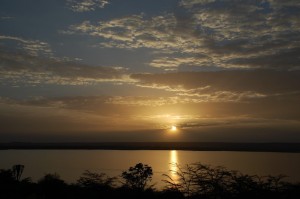
It is beyond dispute that human activities are causing global warming, as even the U.S. government now admits. Although the world’s least developed communities have contributed little to the problem of global warming, they likely will bear its heaviest impacts, and certainly will be least able to adapt to them. The direct impacts of global warming include higher temperatures, sea-level rise, melting of sea ice and glaciers, increased precipitation in some areas and drought in others. Indirect social, environmental, economic and health impacts will follow, including increased death and serious illness in poor communities, decreased crop yields, heat stress in livestock and wildlife, and damage to coastal ecosystems, forests, drinking water, fisheries, buildings and other resources needed for subsistence.
For the indigenous inhabitants of the Arctic—the Inuit, the Yupik and the Inupiat, to name but a few—these impacts threaten fundamental rights protected by regional and universal human rights systems. These include the rights to life and personal security; to use and enjoyment of property; to residence and movement; to inviolability of the home; to preservation of health; to the benefits of culture; to work and fair remuneration; to means of subsistence; and to free disposition of natural resources. Many of the impacts of global warming will be especially problematic for indigenous communities, who are recognized to have special status under international law. Citizens of wealthier countries may be able to insulate themselves from the impacts of global warming, at least in the near term, and perhaps it is partly for this reason that the United States, the world’s largest contribut or to global warming, has chosen to reject international response measures, such as the Kyoto Protocol to the United Nations Framework Convention on Global warming.
This paper examines the options for bringing a human rights complaint against the United States. Because international human rights law gives states primary responsibility for ensuring the protection of human rights, we confine this analysis to a claim against the United States. However, because some human rights institutions have in some instances recognized the
responsibility of corporations for human rights violations, global warming may be a basis forclaims against U.S. corporations as well.
